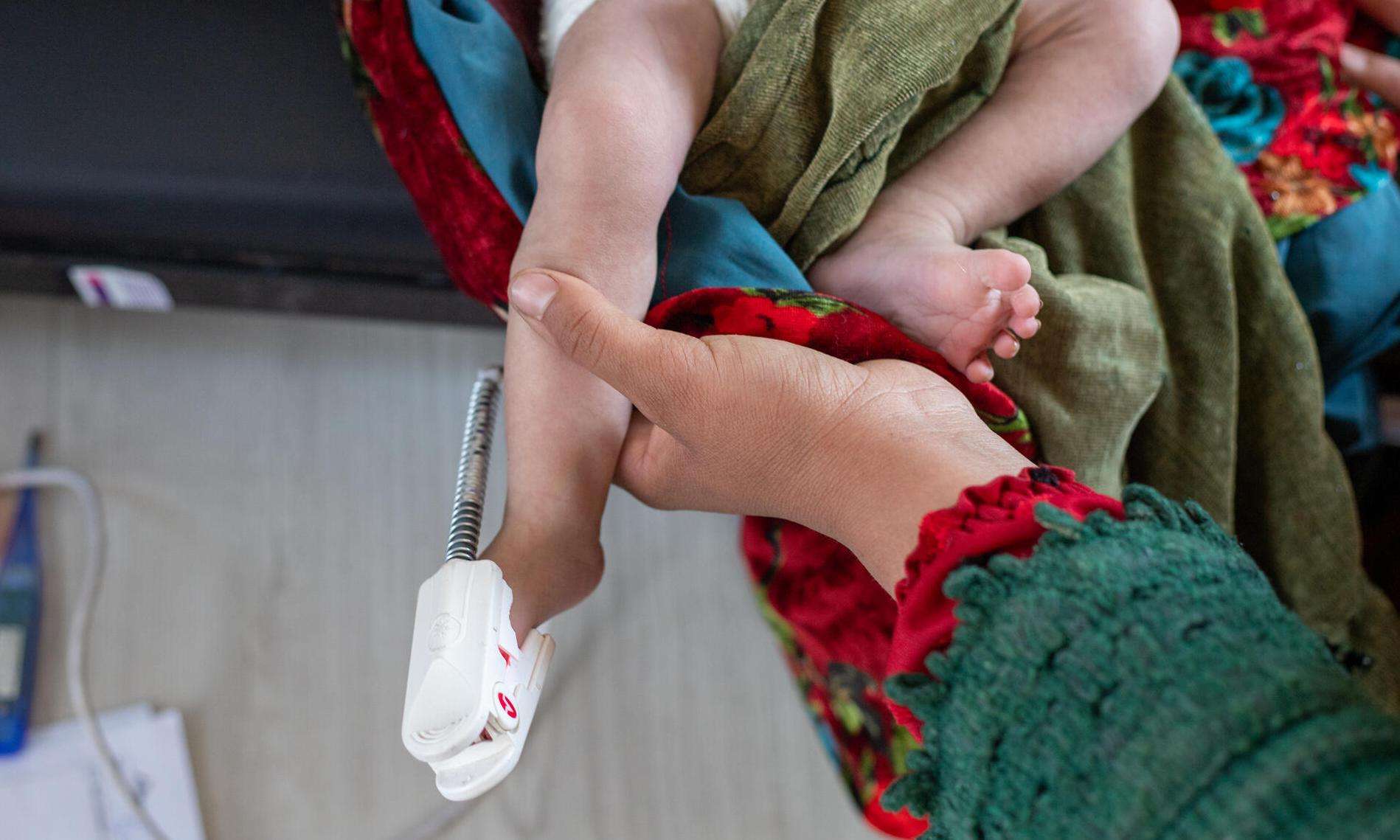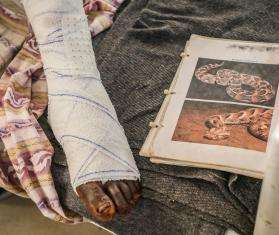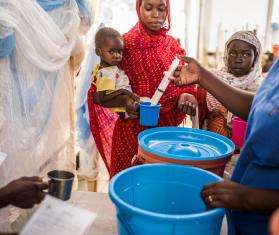Doctors Without Borders/Médecins Sans Frontières (MSF) is currently running projects in Afghanistan to combat malnutrition in Herat, Kandahar, and Lashkar Gah, scaling up our inpatient therapeutic feeding centers to treat more patients with severe acute malnutrition and medical complications.
MSF hospitals and clinics, as well MSF-supported Ministry of Public Health hospitals, often receive patients who travel long distances because they lack access to quality health care near their homes, or because the children affected are too young to be eligible for existing nutrition programs.
Crowded rooms of malnutrition patients
A baby lies with his eyes closed, his fleece blanket a riot of reds, pinks, and greens. On his nose, an adhesive bandage secures tubes running into his tiny nostrils, feeding him a milk solution to help him regain his strength. His mother watches him intently from a nearby chair. Other women in the room talk and laugh, their children lying on the bed between them. The inpatient therapeutic feeding center in Herat is busy, and the rooms are small for the number of beds accommodating malnourished children and their caregivers.
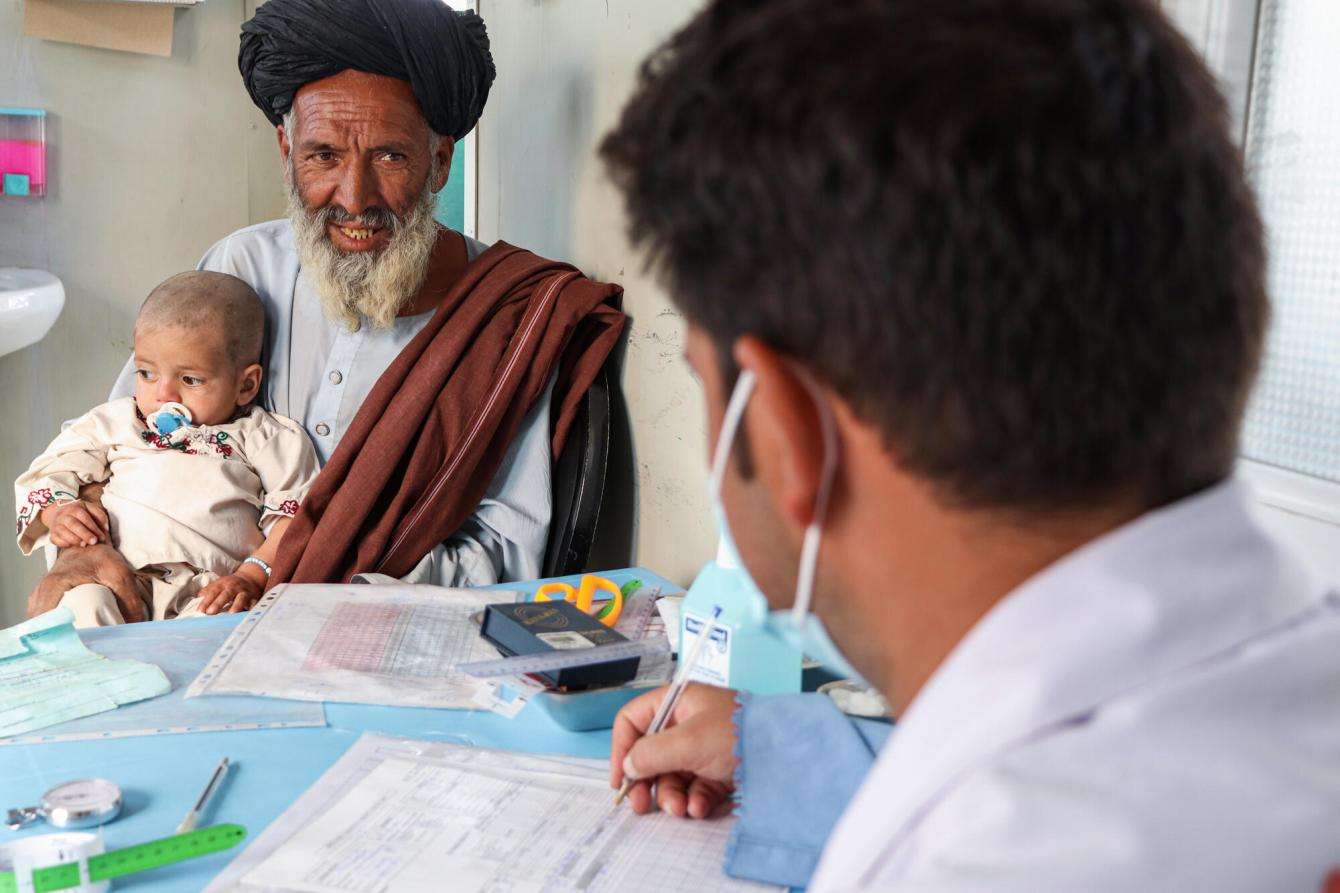
Further south, in Helmand, there are similar scenes at Boost Hospital. During admission, a nurse slips the colored band of mid-upper arm circumference (MUAC) tape over Nazifa’s small arm and pulls the plastic tighter. It settles firmly in the red, indicating malnutrition. She will then be measured and weighed before being admitted for a few weeks to stabilize her weight and treat her diarrhea.
Parents tell MSF of their struggles to feed their families because of lack of money, rather than lack of food. Further, some mothers who have inadequate nutrition are not able to produce enough milk, and there is a domino effect on infants. “When he was born, he was healthy but I didn't have breastmilk, so we started infant formula, but that made him sick,” says one mother.
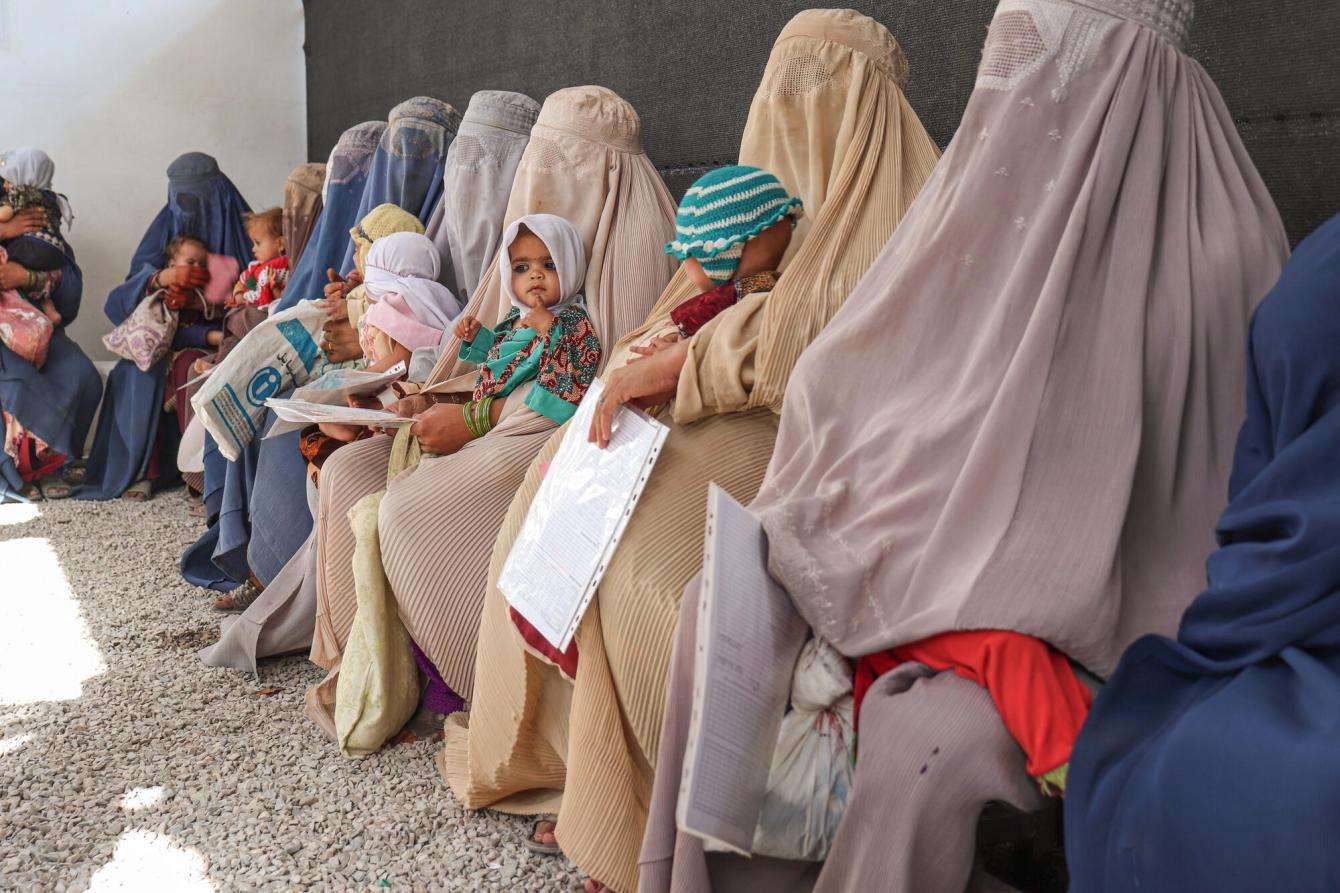
Hours-long journeys to seek health care
“We have come here from Kamari in Badghis Province, a journey of four hours,” explains Fatima* who brought her son to Herat for treatment for malnutrition and chickenpox. She had previously sought help at a clinic closer to home but was unable to find the help she needed.
Afghanistan’s dire economic situation means that most people who might previously have been able to afford care in private clinics now rely on health centers supported by international organizations. Roya—a mother whose child has been in the hospital for the last two weeks—says that in her village, nearly all the children are suffering from malnutrition because of the economic situation. “They do not have money, even if it's 50 or 100 Afghani [$0.70 - $1.40] to pay for the taxi to bring their children here for treatment,” says Fatima.
Sitting outside on benches in Kandahar, the sun reflecting off the grey gravel, mothers wait patiently with their children on their laps and medical documents clasped tightly in their hands, waiting to be called into an office for assessment. Those who are severely malnourished without medical complications will be enrolled in six to eight weeks of outpatient care and provided with ready-to-use therapeutic food, which they will take home before coming back the following week for a check-up.
Over the course of 2023, MSF-run and MSF-supported facilities in Herat, Lashkar Gah, and Kandahar admitted a total of over 10,400 children up to five years old. Between January and April 2024 we admitted 2,416 patients, a 5 percent increase compared to the same period the previous year. Teams in Herat and Kandahar enrolled over 6,900 children in outpatient therapeutic feeding centers in 2023.
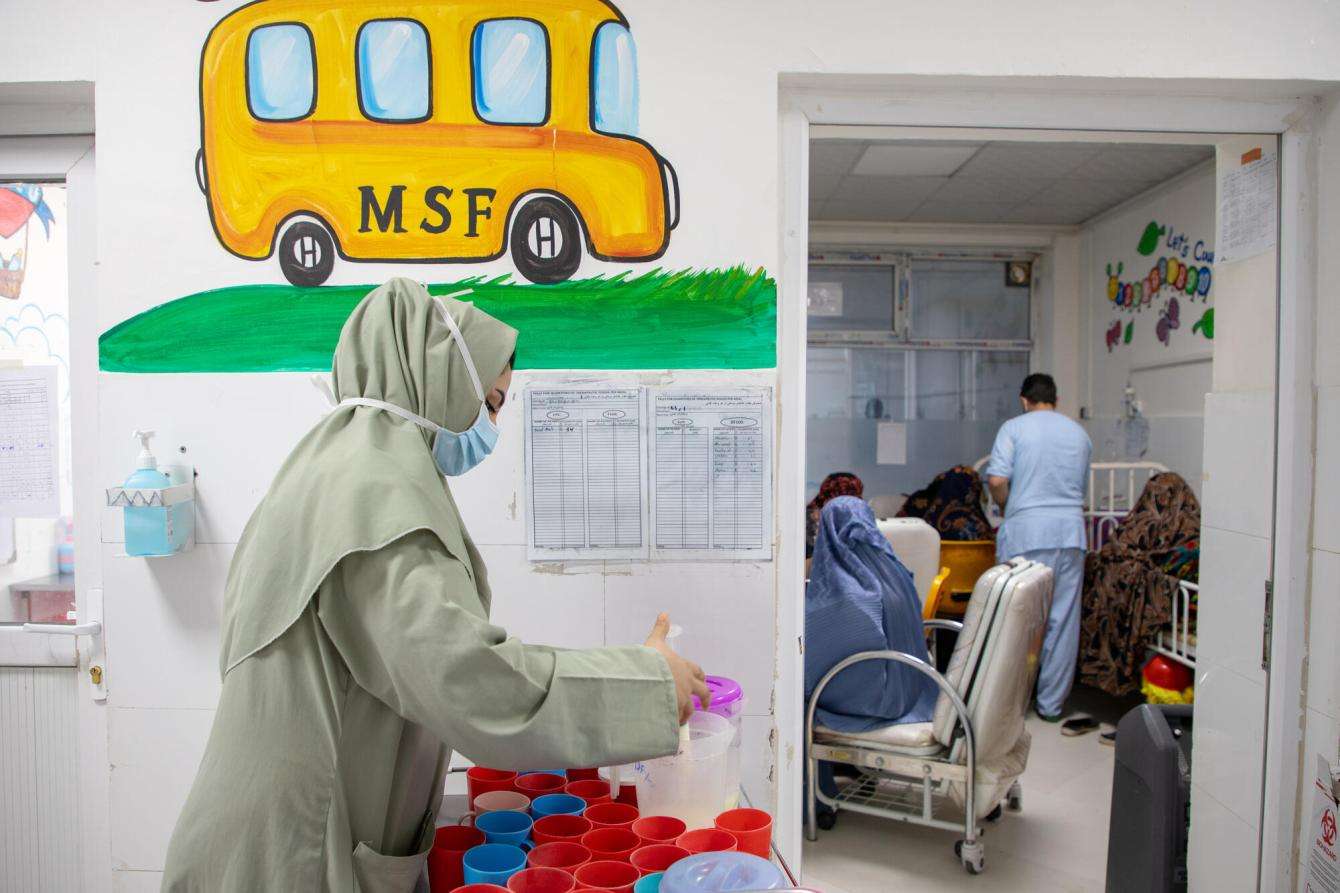
Despite treatment, root causes of malnutrition remain
“In Herat, many of the patients we see are under one year old and this points to issues with breastfeeding and complementary feeding [introducing nutritious food in addition to breastmilk],” explains Aline Plener, MSF medical coordinator in Afghanistan. and this is "[This is]something we are working to address through our health promotion activities with the mothers and their families. Children under six months [old] are also often too young to be enrolled in many of the nutrition programs, so it’s harder for families to get them the care they need when they’re malnourished. And without a broadening of admission criteria, this will remain the case.”
Often the inpatient wards for malnutrition are so crowded that two babies and their mothers share the same bed. Some are treated by MSF, go home, and then come back again a few weeks later, the root causes of their malnutrition unaddressed. For those with congenital diseases, this is because the necessary specialized hospital care is hard to find, often far away from home, and expensive. Some mothers like Roya, though, are being offered temporary relief: “My child's health has completely changed for the better and she’s recovering. We're at a stage where we can leave for home.”
*Names changed to protect privacy
